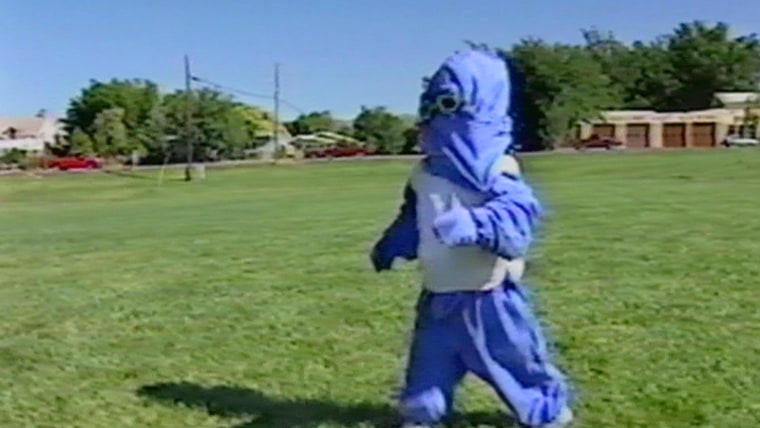When Paris Feltner was a baby, people would stop her mother Jennifer on the street, at the grocery store, wherever — just to say how adorable she was.
They especially liked her freckles. And her mom enjoyed the attention that Paris’ freckles drew — that is until doctors told her that a baby should not be freckling at 6 months old.
Early, intense freckling is one of the signs that a child may have xeroderma pigmentosum, also known as XP — a rare, incurable genetic disorder with fewer than 400 diagnosed cases in the U.S.
WATCH FULL DATELINE 'OUT OF THE SHADOWS' REPORT
Among the dozen or so illnesses that force people to avoid the sun and other sources of ultraviolet light, XP is considered one of the most serious. (And there are different forms of XP, with some far more debilitating than others, including one that causes gradual neurological damage.)
People with the disease lack the enzyme that repairs the DNA damage caused by everyday sun exposure; damaged skin cells that can't repair themselves can become cancerous.
And though anybody can get skin cancer from too much sun — in fact, one in five people will — people with XP are 20,000 times more likely to get skin cancer if they don’t protect themselves from the sun.
"Every second that they're out in the sun, they're accumulating DNA damage that ultimately will lead to cancer," says. Dr. Bari Cunningham, a pediatric dermatologist who has worked with XP children for many years.
So while sufferers of other photosensitive skin diseases can often tolerate some amount of sun exposure before symptoms occur, the harmful effects of the sun are accumulative and irreversible for kids living with XP. Simply put: Every second of sun exposure increases their chances of getting skin cancer -- and possibly dying from it.
The disease is also insidious because there are often no immediate symptoms -- no medical warning signs -- that alert undiagnosed children that the sun is doing incredible harm.
"Forty percent of patients with XP don't experience that tingling and burning and pain when they go out in the sun, and that's actually the problem," said Cunningham. "They actually have a earlier onset of skin cancer and more advanced cancers, probably because they don't know early on, to stay away from the sun."
And even when kids are diagnosed and know that they should avoid the sun, they sometimes don't have the resources or specific knowledge to protect themselves properly — especially for those living in the tropical regions of the developing world.

Dr. Cunningham makes regular trips to Central America, where she helps reconstruct the faces of children disfigured from numerous skin cancers.
Now 17, Paris was extremely lucky to have been diagnosed so early in her life — she's been protecting herself from the sun since she was nine months old. But even so, doctors discovered a skin cancer — melanoma, the deadliest kind — on Paris' head when she was eight. It was successfully removed, but the scare forced Paris to be even more vigilant about protecting herself — which is hard to do in the bright, cloudless skies of southern Utah, where her family lives.
And even though her clear, UV-resistant plastic hood is a huge improvement from the face mask and goggles she wore as a toddler, it's not an easy thing to put on as a teenager in high school, with all the social pressures of trying to fit in.
But Paris says it’s been a challenge, but she will never take off her hood in the sun, even though she may want to sometimes. "The friends that I've known for years," Paris says. "They don't know the severity of it. They don't know that if I don't wear my hood, I could potentially die."
For more information on, visit the XP Family Support Group.

